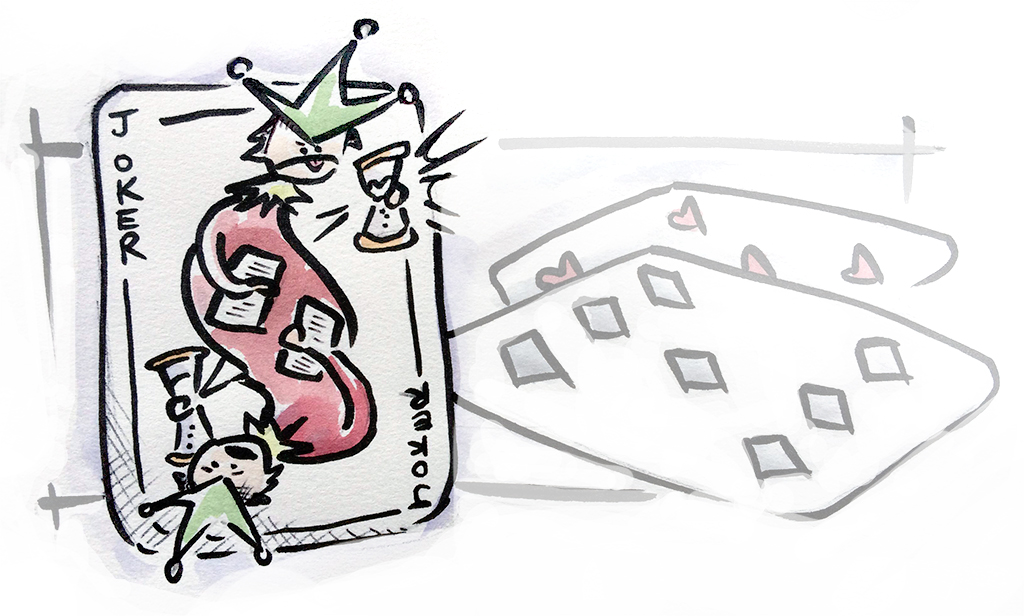BendyConf: Bad Estimating Games

Estimation is a crucial but challenging element to managing any software project. Without estimates, we can’t say what stories (or features, in our lingo) are in scope or not in scope for a given development phase. At the same time, the process of estimation is often influenced by power dynamics and other subtleties of psychology that affect the accuracy of our estimates.
At BendyConf, our internal conference, Amy Unger presented a compendium of bad estimating games. By comparing estimation bad habits to casino games, Amy gives us a lighthearted but powerful vocabulary to discuss and improve our practices.
- Solitaire. Don’t estimate by yourself. If the client asks you to make a solo estimate, just say no. Each story deserves a conversation, or at least a quick gut check from another programmer.
- Dummy Bridge. Playing four-player bridge with three people is hard. Making estimates that affect four people with a group of three isn’t just hard, it’s foolish. If someone’s work influences or is influenced by estimation, they need to be there, especially if they’re the ones doing the estimated work.
- Slot Machines. When the group gives estimates in succession, people who lag in the process often amend their estimates to fall into line with the speedier estimators. Why? Those who aren’t as quick to show their cards are likely still contemplating their decisions, and they take their colleagues estimates into account instead of offering independent assessments.
- Black Jack. “If you go above everyone else’s estimate, your estimate is out.” This all-too-common game was the inspiration for Amy’s talk. If you estimate high, you catch everyone’s attention and risk losing the project or client trust if the client perceives the cost as too high. If you estimate too low, Amy noted, you can shrug it off afterward. “We estimated too low, but that’s how it goes sometimes.” And you still got the work, if also a slightly irked client. It’s a short sighted but oft played estimation game.
- Resistance. People who have an agenda dominate the conversation and throw the game.
It’s time to stop playing games with estimation. At least bad games, that is, because we’d really like to play Planning Poker. In this estimation model, each story is first introduced and discussed as a group. Individuals then make private estimates before revealing them simultaneously with the rest of the group. Discussion resumes, followed by repeated rounds of estimation to come to a consensus.
If you’re in the middle of estimation and someone begins to dominate the conversation with their agenda or estimates are thrown out in success, try calling the behavior out as Resistance or Slot Machine Estimation. Suggest Planning Poker instead, and let us know how changing the game changes the quality of your team’s estimates.